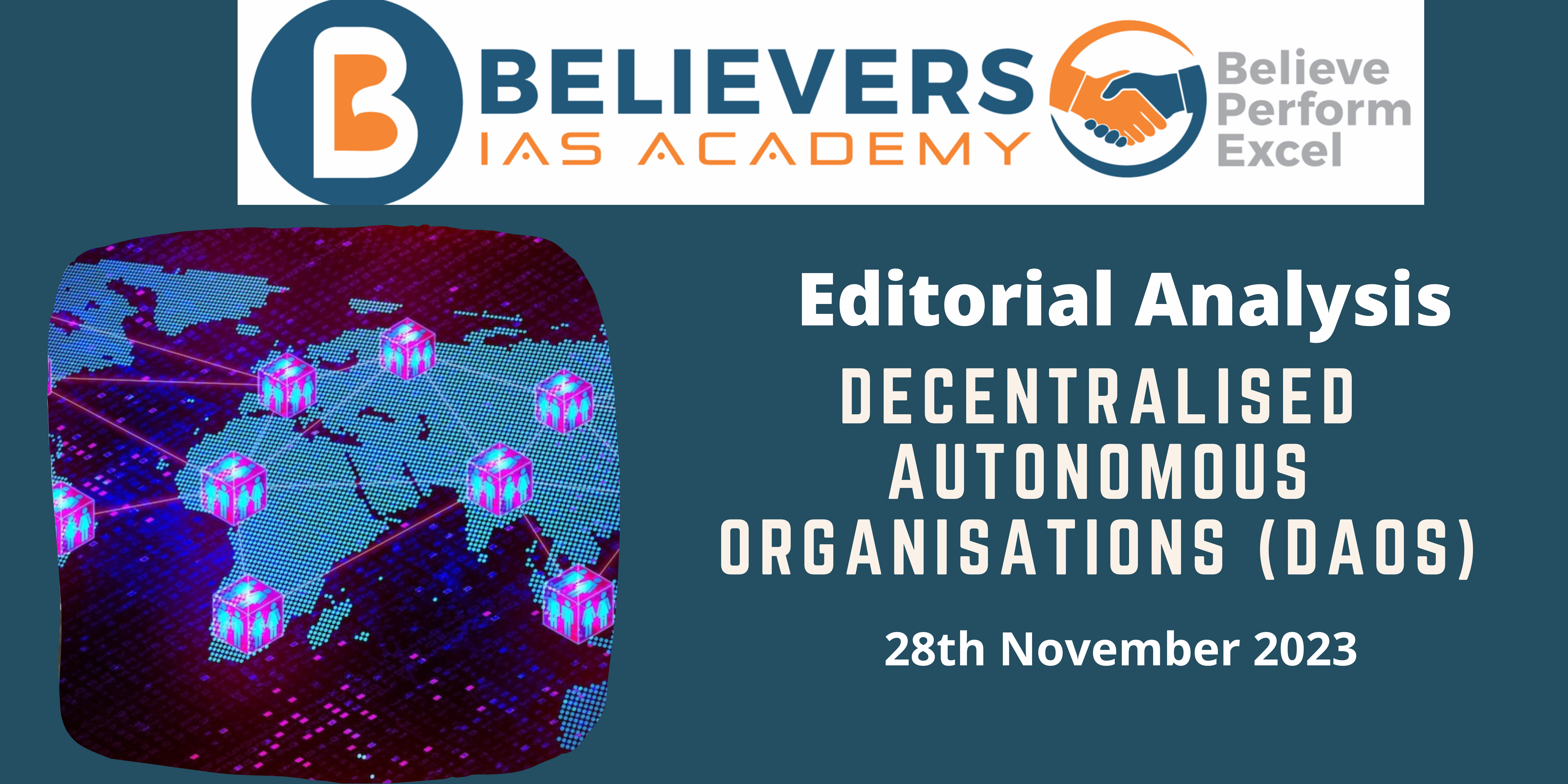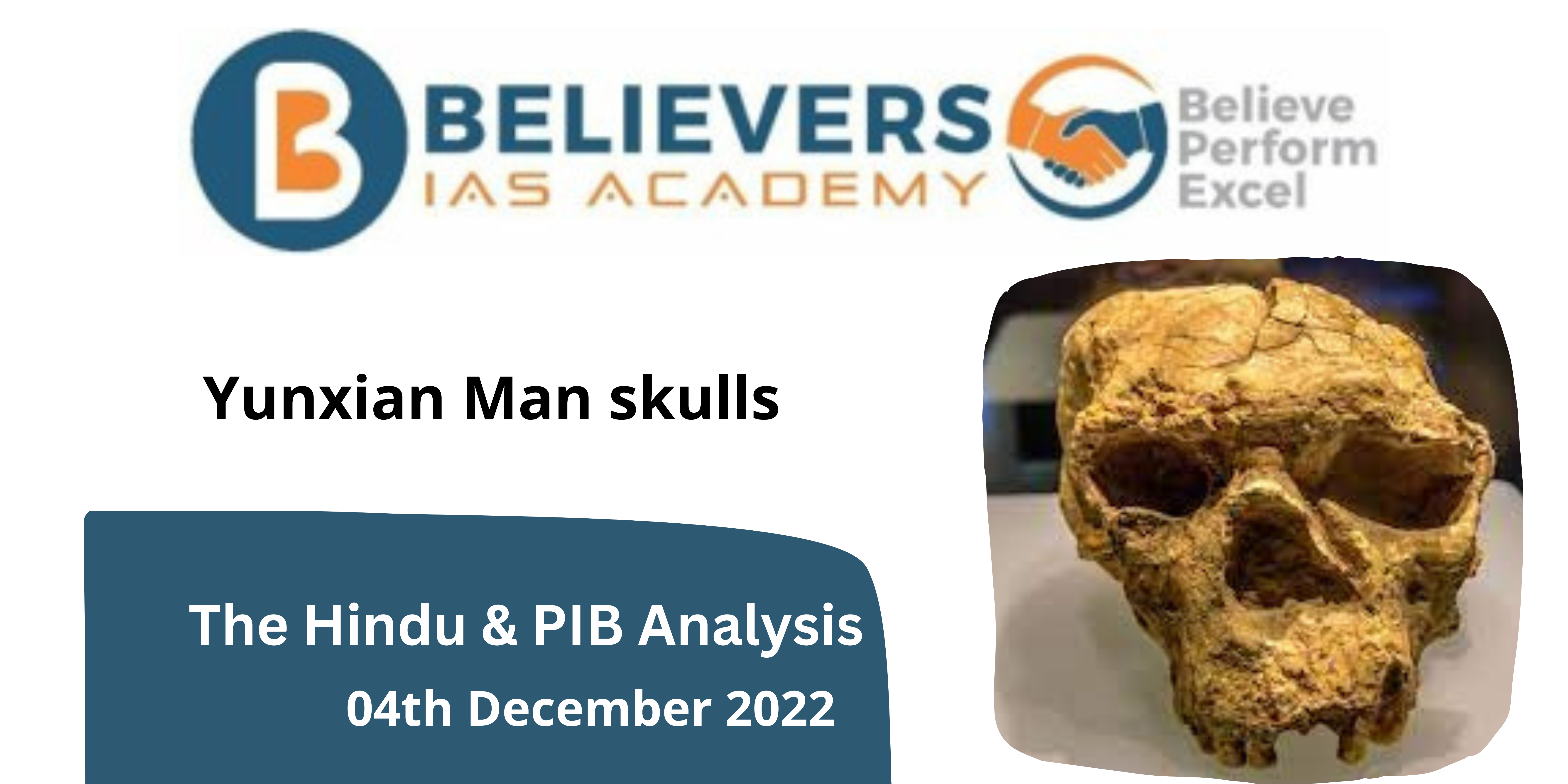Decentralised Autonomous Organisations (DAOs)
Context:
The idea to create self-sustaining, community-driven entities governed by smart contracts on blockchain networks has paved way to a groundbreaking innovation– Decentralised Autonomous Organisations (DAOs).
- Operating without a central authority, these digital entities leverage smart contracts and member consensus, often utilizing cryptocurrencies.
Relevance:
GS-02, GS-03 ( Government policies and Interventions, Science and Technology)
Prelims:
Block Chain technology, Web 3.0
Mains Question:
Examine the feasibility and potential impacts of Decentralised Autonomous Organisations (DAOs) in various sectors. (150 words)
Web 3.0:
- It is a decentralized internet that aims to run on blockchain technology, which is different from the versions previously in use, Web 1.0 and Web 2.0.
- The users will have ownership stakes in platforms and applications unlike now where tech giants control the platforms.
- Gavin Wood, founder of Ethereum, a block chain technology company, used the term Web3 first in 2014.
Dimensions of the Article:
- Understanding the Concept of DAOs
- The Various Use Cases
- Implications for the Digital World
- The Challenges and Controversies
Understanding the Concept of DAOs:
- DAOs are innovative entities governed by smart contracts, creating self-sustaining organisations transparently controlled by members.
- It uses blockchain technology to automate some aspects of voting and transaction processing.
- DAOs are a key component of important blockchain applications, including cryptocurrency, as well as Web 3.0, a proposed architecture for the next generation of the web that relies on the decentralization enabled by blockchain.
- They operate on blockchain networks without centralized control and fostering global collaboration.
- DAOs have garnered attention for their potential to change various industries, including finance, art, and governance, by fostering transparent, democratic, and self-executing systems.
The Various Use Cases:
- DAOs showcase versatility across industries. In decentralised finance, platforms like Compound and MakerDAO provide lending and borrowing services outside traditional banking.
- In art, DAOs manage royalties and intellectual property for tokenised creations. Supply chain management benefits from DAOs’ transparency, ensuring product authenticity. Online communities use DAOs for decentralised governance through platforms like DAOstack.
Implications for the Digital World:
- DAOs embody key principles: decentralisation shifts power to the collective, transparency and trust thrive through smart contracts, inclusivity transcends barriers, and collaboration takes on new global dimensions.
- These principles redefine governance, trust, and cooperation in the digital era, promising a more equitable and collaborative future.
- This dynamic environment fosters innovation as ideas flow freely, unencumbered by hierarchical structures. Together, these principles underscore the transformative potential of DAOs, paving the way for a more decentralised, equitable, and collaborative digital future.
The Challenges and Controversies:
- The journey of DAOs faces obstacles, notably the 2016 DAO hack that exposed vulnerabilities, leading to a contentious hard fork in the Ethereum blockchain.
- Legal and regulatory uncertainties surround DAOs, questioning their classification, taxation, legal liability, and compliance with regulations.
- The challenge lies in creating a legal framework that aligns with DAOs‘ innovative characteristics while addressing regulatory complexities.
Way Forward:
- DAOs present a transformative shift in digital organization and collaboration. Despite challenges, their potential to drive positive change is vast. Ongoing collaboration between regulators, developers, and participants is crucial to create a legal framework that allows DAOs to flourish while ensuring compliance with evolving challenges.




